Dear WesleyNexus Colleagues,
Last month we started our newsletter with the affirmation in John 14:6 that Jesus is “the way, the truth and the life. No one comes to the Father except through me”. Seems like a clear cut statement of faith and commitment. But we qualified it by emphasizing the importance of dialectical engagement. This month we will dig into this notion of dialectical engagement by highlighting the Templeton Foundation mission of pursuing truth through humility, or as Sir John Templeton called it, the humble approach.
“In his book, The Humble Approach, Templeton claims that “humility is the key to progress. Without it we will be too self-satisfied with past glories to launch boldly into the challenges ahead. Without humility we will not be wide-eyed and open-minded enough to discover new areas for research. If we are not as humble as children, we may be unable to admit mistakes, seek advice, and try again. The humble approach is for all of us who are concerned about the future of our civilization and the role we are to play in it. It is an approach for all of us who are not satisfied to let things drift and who want to channel our creative restlessness toward helping to build the kingdom of God. Every person’s concept of God is too small. Through humility we can begin to get into true perspective the infinity of God. This is the humble approach”.
Given the divisions we see inside and outside the church, a little humility, patience and inquisitiveness is warranted by all. It also provides a foundation for new developments and discoveries in science and religion.
Thanks go out to our generous contributors. We encourage you to share comments, articles and insights that will help us all weather these difficult times.
Rick, Jennifer, Maynard, and the rest of the WesleyNexus team
**********************************************
The Humble Approach by Sir John Templeton
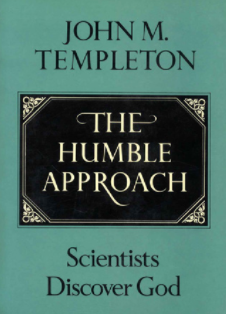
The humble approach to human knowledge is meant to help as a corrective to the parochialism that blocks further development in religious studies. Taking this humble approach reminds us that each person’s concept of God, the universe, even his or her own self is too limited. To some extent, we are all too self-centered. We overestimate the small amount of knowledge we possess. To be humble means to admit the infinity of creation and to search one’s place in God’s infinite plan for creation. This approach asks each of us, whether we are students of the natural or the supernatural, to witness to the intimate relationship of physical and spiritual reality in our own lives. In a humble manner we can use our talents to explore the universe to discover future trends. There is abundant evidence that by grace God gives us talents and intelligence with which to participate in His vast creative process. (p. 2)
For an online version of The Humble Approach, see link below.
https://www.templetonpress.org/sites/default/files/2016-11/Humble_Approach.pdf
*********************************************************
Reflections by the WesleyNexus Board of Directors.
It looks like we are no longer United Methodists. Churches voting to leave the UMC. We are following the truth; we just can’t agree on what the truth is. Certainty overrules whatever doubt may suggest. (Wendel Thompson)
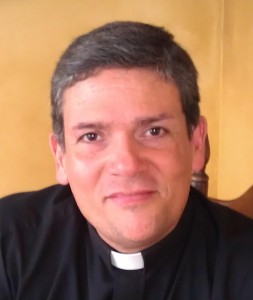
—-
Wendel: Thank you for your comment. Just my feedback. We are still United Methodists, there are many more people wanting to remain in this connection than not. My sense is that we have never been of one mind on many things, the latest is homosexuality (before that: women’s role in leadership, immigration, slavery, imperialism, capitalism, racism, etc.), but it does not mean that we are not a communion that honors and sustains unity. Thank God, we do not look for uniformity, since unity is not uniformity nor conformity, as some people may suggest or believe.
I believe in the UNITY of the United Methodist Church, not in the uniformity of beliefs (i.e., everyone thinking the same thing and believing the same thing). I believe that we can be a diverse people, a people with differences who are able to work together for the common good. Our desire for control and scapegoating leads us into this place where the right belief supersedes right living (cannot expand too much on this here). However, the Gospel does not call us to right belief but rather to right living. God desires that we are made whole (which is connected to the word for holy), to be made whole by our relationship with each other and with God (Matthew 25:31-46; 1John 3:1-11, 13-15) because a holy (whole) life is only lived when we love each other the way that God has loved us (even those who are different from us).
Regrettably, when we focus our attention on finding the TRUTH that is objectively and epistemologically coherent and then we turn that cogent TRUTH into an absolute, then truth is no longer truth but another idol we create. As John Calvin so eloquently expressed it: “the human heart is a perpetual idol factory” (hominis ingenium perpetuam, ut ita loquar, esse idolorum fabricam) [Institutes I.11.8]. (Rev. Dr. Eliezer Valentín-Castañón)
—-

To love one another means to desire to be with one another while at the same time affirming the true otherness that exists in this relationship. In last month’s newsletter, I used the term dialectical engagement. The first step in dialectical engagement is to be with the other, to strive for an I/Thou relationship, to use Martin Buber’s famous term. It is the process of affirming the other and not doing violence to the other, while at the same time engaging with one’s own self and not denying who one is. It is also the process of sharing knowledge and insight from many sources without loading the deck to dominate the outcome. The Wesleyan Quadrilateral summarizes it well, though too often, we weigh the scales in defense of scripture and tradition.
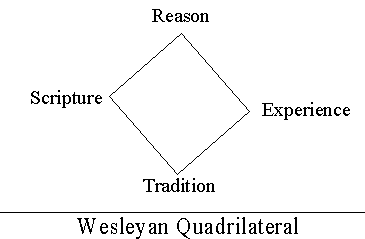
Dialectical engagement is hard, time consuming work that is frequently uncomfortable and makes us vulnerable to change. Unfortunately, most of us are not very good at it. As Eliezer points out, we have turned our desire for truth and our supposed grasp of it into idols used to dominate others. Nonetheless, though the United Methodist Church is heading for division into two or more camps, I still have hope that though divided, we can step back, collect and reestablish relationships that reflect the good news of the gospel. (Rick Barr)
******************************************************************
Templeton Foundation Intellectual Humility Project

Supporting research on the theory, understanding, and practice of intellectual humility.
In this strategic priority, we aim to extend recent efforts to improve empirical methods and measures of intellectual humility and to increase understanding of the nature, causes, and effects of this epistemological virtue. We will support a variety of activities, including Public Engagement, that aim ultimately to enhance, cultivate, and promote humility of this sort.
Our plans for this priority include, but are not limited to, support for the following activities:
Consolidating theoretical foundations. We will support efforts aimed at consolidating and otherwise improving our theoretical and empirical understanding of intellectual humility.
Investigating aids and impediments. We will fund research that aims to discover more about the factors that enhance and inhibit intellectual humility, as well as research that identifies practices and interventions that foster such humility.
https://www.templeton.org/project/intellectual-humility
******************************************************************
IRAS Star Island Conference
Sunday, June 27-Saturday, July 3, 2021

IRAS will go ahead with our conference, Naturalism — as Religion, within Religions, without Religions.
It will be another great conference, in a special year. We expect that the joy of an ‘in person’ conference, after a year full of online meetings, will be well worth it. And that in years to come, when we look back, this will shine in our memories as a special year, with a remarkable conference.
| Online access to Naturalism – as Religion, within Religions, without Religion The IRAS conference 2021 June 27 – July 3, 2021. The IRAS-conference will be held ‘in person’ at Star Island, NH, Sunday June 27 – Saturday July 3d, 2021. A great opportunity. There still are a few open spaces, for which you can register at https://starisland.org/program/iras/ .If you are not able to join the conference at Star Island, but would like to hear Owen Flanagan, Ursula Goodenough, Sarah Lane Ritchie, Carol Wayne White, and Willem B. Drees on Naturalism and Religion, the chapel talks by Janet Newton, the book seminars with Karl Peters and Michael Ruse, the papers by Shapley Booth Fellows Curtis Craig and Mark Hoelter, and other selected short papers: we have a special offer. Those sessions we will stream. Those registered for the streaming, will also have access to informal conversations over Zoom at the daily Social Hour.Online access is free for IRAS members, though a donation is suggested. For non-members, the fee for all the sessions together is $ 100. However, it is cheaper to become a member (first year membership $ 40), and thus count as an IRAS member. For the program, see: https://www.iras.org/2021-conference-program.html . There you will find a link to Register for Streaming Access. Those who have registered will receive the password for the page that has the link for the webinars for all sessions and the zoom-link for social hour, as well as some additional materials, such as manuscripts to be discussed at the book seminars. (Conferees do not need to register for this; they will receive access to the materials and the streaming.)The co-chairs of the conference, Abby Fuller, Barbara Whittaker-Johns, Wim Drees |
******************************************************************
IRAS Monthly Webinar Series
Value of life: Views from Science and Scripture: Presented June 17, 2021
The commandment “Thou shalt not kill” has been almost completely disregarded across history. Is it that our world to-date has been governed by the economist’s mantra that the value of an object is determined on the basis of supply/demand considerations? Other disciplines, however, such as engineering, cosmology and the scriptures tell a totally different story. Which is right? The scheduled talk will provide evidence that life is indeed invaluable and a paradigm shift in our values and attitudes is mandatory if humanity is not just to learn how to survive but to actually thrive in the future. Only by learning to value ourselves correctly shall we learn to value others, in a win win fashion.
About the June 17, 2021 presenter:
Dr. Tariq Mustafa is a mechanical engineer with specialization in nuclear engineering and space technology. He graduated from London University with first class honors while also completing an engineering apprenticeship at the Royal Arsenal in Woolwich, UK. He then did post graduate work at the Atomic Energy and Space establishments of UK, the US, and France. He received an Honorary DSc. from the University of Greenwich, U.K. in 2013 and the Pakistan President’s award for lifetime excellence in Engineering in 2021. He has been a prominent speaker in the area of Science, Technology and Engineering in many countries and has worked closely with Prof. Abdul Salam, the Nobel Laureate in Physics. He has been a searcher all his life, particularly on the subject of “Human’s place in the universe” and the connection between reason and revelation. His paper on “The development of Evaluation Criteria for Authenticity of Revelation” was published in the September 2008 issue of the premier Science and Religion Journal Zygon. His most recent book, The Case for God, affirming the existence of the Creator, based on reason and evidence and not mere faith, is available from Amazon books. He is currently president of Pakistan’s National Paralympics Committee and President of the South Asian Paralympics Committee. He is a member of the Executive Council of the Institute for Religion in the Age of Science, USA.
Go to https://www.iras.org/webinar-series.html to register for both programs.
******************************************************************
Jane Goodall awarded the 2021 Templeton Prize
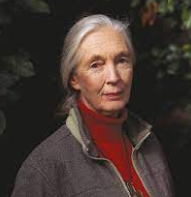
She received the 2021 Templeton Prize in celebration of her remarkable career, which arose from and was sustained by a keen scientific and spiritual curiosity. Her groundbreaking discoveries have changed humanity’s understanding of its role in an interconnected world, and her advocacy has pointed to a greater purpose for our species in caring for life on this planet. She founded the Jane Goodall Institute in 1977 to continue her work to study and protect chimpanzees while also improving the lives of local communities through education and training. Through her organizations, she has saved thousands of animals and inspired millions of people around the world to take action in their communities. “I have learned more about the two sides of human nature, and I am convinced that there are more good than bad people,” said Dr. Jane Goodall, in her acceptance statement for the Templeton Prize. “There are so many tackling seemingly impossible tasks and succeeding. Only when head and heart work in harmony can we attain our true human potential.”
https://www.templetonprize.org/laureate/jane-goodall/
******************************************************************
The Nobel Prize: Celebrating Creative Minds by Melania Zauri

Substantially passion, love, knowledge, freedom of mind are all elements of creativity, but most important are curiosity and humility. This “I don’t know!” brought Newton to realise the principles of gravity after seeing an apple fall. Marie Sklodowska Curie taught chemistry at a private high school and by saying “I don’t know” and keeping on learning she went not just once but twice to Stockholm – where restless, questing spirits are occasionally rewarded with the Nobel Prize.
https://www.lindau-nobel.org/blog-the-nobel-prize-celebrating-creative-minds/
Lindau Nobel Laureate Meetings

Once every year, around 30-40 Nobel Laureates convene in Lindau to meet the next generation of leading scientists: 600 undergraduates, PhD students, and post-doc researchers from all over the world. The Lindau Nobel Laureate Meetings foster the exchange among scientists of different generations, cultures, and disciplines.
The meetings focus alternately on physiology and medicine, on physics, and on chemistry – the three natural science Nobel Prize disciplines. An interdisciplinary meeting revolving around all three natural sciences is held every five years. In addition, the Lindau Meeting on Economic Sciences is held every three years.
The scientific programme of each Lindau Meeting is based on the principle of dialogue. The different sessions – lectures, discussions, Master Classes, and panel discussions – are designed to activate the exchange of knowledge, ideas, and experience between and among Nobel Laureates and young scientists.
******************************************************************
Science and Religion Have Never Been More at Odds. Can Conshohocken’s Templeton Foundation Bridge the Divide? by Sandy Hingston
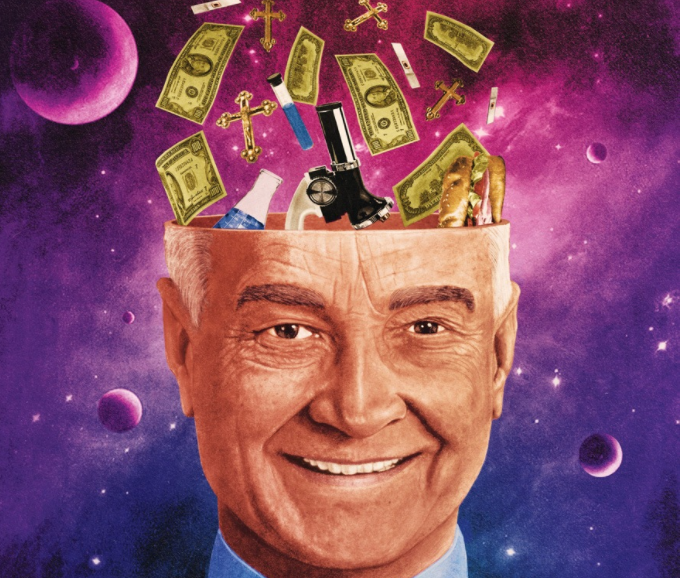
In this article from October, 2020, Sandy Hingston provides an in depth look into the Templeton Foundation, a non-profit institution that has provided millions of dollars to research in the field of science and religion. In this article, Hingston takes a balanced view of the Templeton Foundations mission and accomplishment.
https://www.phillymag.com/news/2020/10/10/john-templeton-foundation-philadelphia/
******************************************************************
Of Artichokes and Onions: Singing to the Lord a New Song By Dr. Jim Miller
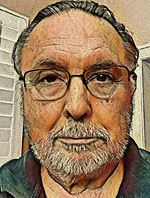
This is the last of a series of reflections by Jim Miller, long time friend of WesleyNexus and internationally known for his decades of work in science and religion dialogue. Read them all, they are worth your time and effort.
“But before getting into the theological substance of this post I want to offer three caveats. First, contrary to many theists and atheists, I hold that the affirmation of God is a presupposition not a conclusion. You do not make an argument and then say, “QED, God!” Rather you say, “Given God, ….” and then live in relation to the content of that affirmation. At its most basic, I think the affirmation of God is a declaration of faith that there is an a priori transcendent order to things. What follows is my characterization of that order.
I say “my characterization” because, once again, I recognize that there are alternative characterizations. In their important work, Philosophers Speak of God, Charles Hartshorne and William Reese identify ten types of theism. In addition, they describe four types of theological skepticism. Granted that typologies are significantly in the eye of the typologizer, still, their work suggests that when a person says, “I don’t believe in god,” an appropriate response might be, “Which god don’t you believe in?”.
https://www.baramesokairou.net/post/of-artichokes-and-onions-singing-to-the-lord-a-new-song
******************************************************************
Thomas Jay Oord – Opening the Love of God
with Jay McDaniel
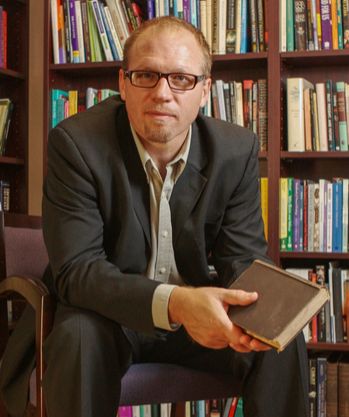
In a time of skepticism concerning religious belief, let’s talk about God and Love. Is it true that there really is a loving God, but that God does not know the future in advance? Is it true that God cannot control what happens in the world, but that God can indeed lure or guide the world into well-being if the world responds? Is it true that God shares in the experiences of each and all, as a fellow sufferer who understands? Is it true that God is Love: not human love, but rather a cosmic love within us and beyond us, everywhere at once, flowing from a personal being, beyond specific location, who listens to us, hears our prayers, and cares for us and all creatures, all of the time? Thomas Oord answers “yes” to all of these questions. The author of many books on God and love, and a talented photographer as well, he is a key leader in the “open and relational theology” movement. We spend an hour with him talking about his life, his work, his ideas, and his hopes for the future.
https://cobb.institute/podcast/thomas-jay-oord-opening-the-love-of-god/
Conversations in Process is co-production of the Cobb Institute (https://cobb.institute/ ) and Open Horizons (http://openhorizons.org/ ).
What is Open and Relational Theology?
******************************************************************
